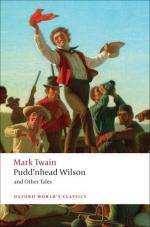I must take passing notice of another point in the Government’s measures for maintaining tranquillity. Everybody says it does not like to see any individual attain to commanding influence in the country, since such a man can become a disturber and an inconvenience. ’We have as much talent as the other nations,’ says the citizen, resignedly, and without bitterness, ’but for the sake of the general good of the country, we are discouraged from making it over-conspicuous; and not only discouraged, but tactfully and skillfully prevented from doing it, if we show too much persistence. Consequently we have no renowned men; in centuries we have seldom produced one—that is, seldom allowed one to produce himself. We can say to-day what no other nation of first importance in the family of Christian civilisations can say—that there exists no Austrian who has made an enduring name for himself which is familiar all around the globe.
Another helper toward tranquillity is the army. It is as pervasive as the atmosphere. It is everywhere. All the mentioned creators, promoters, and preservers of the public tranquillity do their several shares in the quieting work. They make a restful and comfortable serenity and reposefulness. This is disturbed sometimes for a little while: a mob assembles to protest against something; it gets noisy —noisier—still noisier—finally too noisy; then the persuasive soldiery comes charging down upon it, and in a few minutes all is quiet again, and there is no mob.
There is a Constitution and there is a Parliament. The House draws its membership of 425 deputies from the nineteen or twenty states heretofore mentioned. These men represent peoples who speak eleven different languages. That means eleven distinct varieties of jealousies, hostilities, and warring interests. This could be expected to furnish forth a parliament of a pretty inharmonious sort, and make legislation difficult at times—and it does that. The Parliament is split up into many parties—the Clericals, the Progressists, the German Nationalists, the Young Czechs, the Social Democrats, the Christian Socialists, and some others—and it is difficult to get up working combinations among them. They prefer to fight apart sometimes.
The recent troubles have grown out of Count Badeni’s necessities. He could not carry on his Government without a majority vote in the House at his back, and in order to secure it he had to make a trade of some sort. He made it with the Czechs—the Bohemians. The terms were not easy for him: he must issue an ordinance making the Czech tongue the official language in Bohemia in place of the German. This created a storm. All the Germans in Austria were incensed. In numbers they form but a fourth part of the empire’s population, but they urge that the country’s public business should be conducted in one common tongue, and that tongue a world language—which German is.




